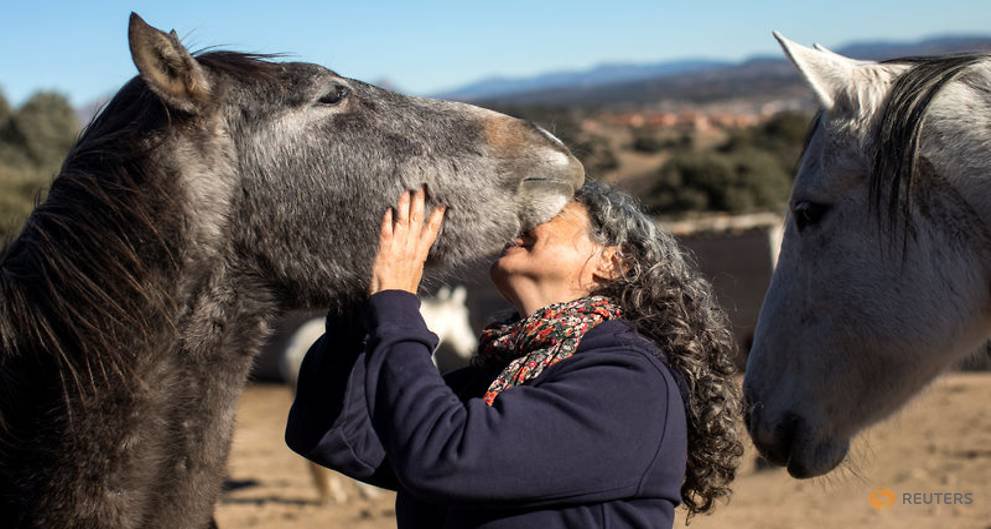
Recently, I watched a documentary about a man named Buck Brannaman, best known as the inspiration for Robert Redford’s movie, “The Horse Whisperer.” This documentary was an in-depth look into his life and how he became so good at training horses.
It was nothing short of a miracle. As children, Buck and his older brother were beaten relentlessly by their father. Buck’s mother died early in his life and, for whatever reason, his father took out his own pain on his children.
Fortunately, he and his brother were placed with foster parents who showed them love and care. It was that love and care, along with his love of horses, that turned him around.
Today Buck travels around the country teaching people how to train horses in a gentle, yet firm and loving manner. In essence he’s doing for horses what his father never did for him. It’s simply remarkable.
What struck me while watching the film was the way horses can often become a reflection of their owner. If the owner is challenged in some way, the horse often shares the same challenge. So much of Buck’s work is helping people understand how they need to work on their own issues as much as those of their horses.
At this point you might be saying, “What does this have to do with major gift fundraising?” Well, I think it has a lot to do with it. Here are four simple, yet powerful things I believe we can learn from Buck Brannaman in our daily work.
- Through pain and disappointment you have the choice to either feel hurt and become cold toward others, or turn that pain into good. In your work with major donors, you often experience disappointment. You can sometimes work with a donor for a year or more cultivating a gift…and then it falls through. That can leave you devastated, – or you can get up, dust yourself off and move forward. I’ve seen both types of responses in MGO’s. The ones who are left devastated eventually become cynical and burn out.
- You can’t hold on too tightly. If a horse feels like you are being too rough or holding the reins too tightly, he becomes agitated and nervous. In the same manner, if you hold on to your caseload too tightly, worrying only about how you are going to meet revenue goals and making decisions based on “getting the money”, you will NOT get the money. Allow yourself to understand the rhythms of your donors. Know how to care for them, when they need assurance and when they need to be asked. If you can be in tune with that, you will be successful.
- You need to be emotionally healthy. As you know, you are in a stressful job. You work with people everyday. In order to be successful as a major gift officer, you have to know yourself well. To serve others well, you have to serve yourself. Take time for quiet and relaxation to calm your mind and spirit. From that space you can be so much more effective in relating to donors and serving them well.
- Love is the only way. One of the amazing things about Buck Brannaman is how he loves – horses, people, his work, his family. That’s what draws people and horses to him. Because he comes from that space, people and horses respond to him in the same manner. If love is how you approach your work, your interactions with colleagues and your donors, you’ll find they will respond in kind. I think you know what it’s like to be around someone who loves what she does. You want to be around her. That is who you want to be as a fundraiser.
If you can welcome these four lessons into your life, own them and live them out, you will have a long and successful career as a fundraiser. To do this work any differently would not be worth doing at all.
Jeff







Nicely done Jeff!!!